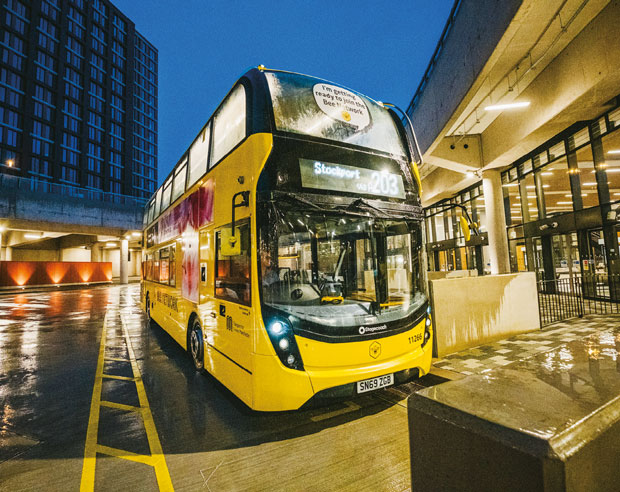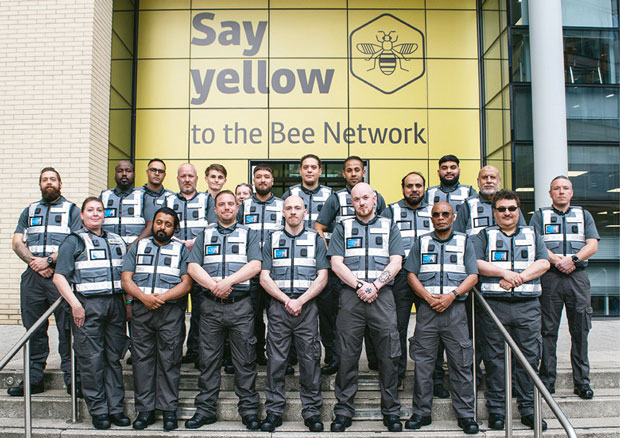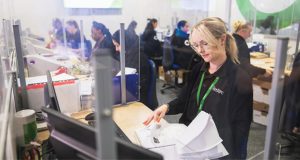 Kieran Mackie, Managing Director, Amulet Security explains how a new travel safety initiative is keeping the public safe on Greater Manchester buses
Kieran Mackie, Managing Director, Amulet Security explains how a new travel safety initiative is keeping the public safe on Greater Manchester buses
In 2023, Greater Manchester was rapidly transforming public transport. With bus franchising and the establishment of the Bee Network imminent, Transport for Greater Manchester (TfGM) wanted to demonstrate a strong zero-tolerance stance on crime and anti-social behaviour to ensure that passengers could be safe and feel safe which would help to encourage more people to switch to public transport.
The Greater Manchester TravelSafe Partnership (TSP) had been established for some time and brought together operators, the police and TfGM to collaborate on issues of crime and anti-social behaviour on public transport. However, the new bus franchise model, the first of its kind in the UK, presented a unique opportunity to address some of these issues in a new way.
Anti-social behaviour incidents rose in Greater Manchester last year, with at least 42 per cent of all reports being “youth-related,” including a 48 per cent surge in assaults on buses, and weapon use rising by 25 per cent. These issues needed to be dealt with – TfGM needed to improve customer perception of safety on transport. When they asked passengers what would make them feel safer, the top answer from commuters was more staff.
A new cohort of front-line staff, with increased numbers was needed. TfGM introduced an initial team of 30 TravelSafe Support and Enforcement Officers (TSEOs) as part of the launch of the Bee Network in September 2023, as bus services started to be brought back under local control. These officers were recruited by Amulet to patrol bus services, interchanges and bus stations.
TSEOs provide a safe, reassuring, yet authoritative presence to deter, prevent and address anti-social behaviour and young people engaging in criminal damage. Their success was quickly evident – TSEOs attended 946 incidents across Greater Manchester bus routes between December 2023 and February 2024.
The scheme has grown since this initial success, with 30 more TSEOs joining in February 2024 and their team structures strengthening to offer better officer support. That way, TSEOs can do the best job possible to keep people safe.
WHAT ARE TSEOS?
TSEOs are a relatively new addition to Greater Manchester buses, but they are a form of Travel Safety Officer (TSO) that have been implemented in rail systems across the country for over a decade. TSOs were introduced to meet a range of needs, dependent on different travel links and passenger demographics.
TSOs and TSEOs are specially trained security officers who tackle low-level nuisance and disorder, prevent abuse, deter fare evasion and target hotspot locations across public transport links. They undergo training to effectively deal with incidents along their patrols. Amulet is one of a select few companies endorsed by the Police Crime Prevention Agency to deliver training for the Community Safe Accreditation Scheme (CSAS) and the Railway Safety Accreditation Scheme (RSAS).
Both accreditations offer enhanced safety and security powers to officers, including police activities like traffic control, confiscation of alcohol, and the right to take someone’s name and address.
TSEOS and TSOs differ from traditional security roles because they are more soft skills focused. Empathy is a special quality and is actively looked for in the recruiting process – officers need to engage with people and draw information out of them, even if they do not want to speak at first.
An example of their effectiveness is with Northern Trains, an early adopter of TSOs. Many scenarios require the delicacy of specialist training, including vulnerable people at risk of harming themselves on the train tracks. Officers with RSAS training are primed to use empathy, kindness and authoritativeness to calmly reassure those near the tracks to step away, de-escalate the situation, and notify the appropriate authorities. In the 2022-2023 year, TSOs assisted 279 vulnerable people and prevented 33 suicides across the Northern Trains network. Other assisted emergencies included 153 medical emergencies, ranging from falls to seizures, strokes and heart attacks.
Situations like these also arise across the bus networks, where TSEOs regularly de-escalate situations and provide support for vulnerable people.






